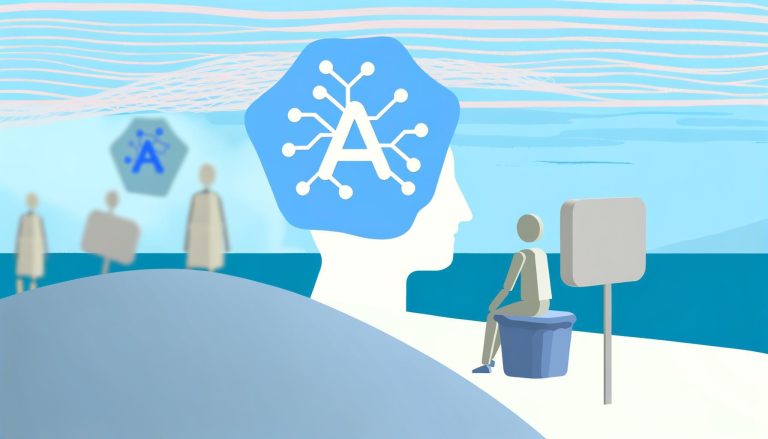As mental health professionals navigate the complexities of their roles, vicarious trauma – the emotional residue from working with individuals who have experienced trauma – can take a significant toll. This article explores how artificial intelligence (AI) can be utilized to manage vicarious trauma effectively, offering practical strategies and benefits for mental health practitioners.
Understanding Vicarious Trauma
Vicarious trauma is a natural emotional response that mental health professionals may experience when exposed to the traumatic experiences of their clients. The symptoms can include emotional numbing, hypervigilance, and a diminished sense of safety. Recognizing and managing these symptoms is crucial to maintaining overall well-being and efficacy in therapeutic practices.
The Impact of Vicarious Trauma
Understanding the profound impact of vicarious trauma on mental health professionals underscores the importance of effective management strategies:
- Emotional Exhaustion: Continuous exposure to traumatic details can lead to emotional exhaustion, impacting both personal and professional life.
- Reduced Empathy: Professionals may experience compassion fatigue, diminishing their ability to empathize with clients.
- Physical Symptoms: Chronic stress from vicarious trauma can manifest as headaches, muscle tension, and other physical ailments.
AI Strategies for Managing Vicarious Trauma
Innovative AI technologies offer numerous strategies to help mental health professionals mitigate the effects of vicarious trauma. These strategies include predictive analytics, virtual reality, smart assistants, and more.
Predictive Analytics
Predictive analytics utilizes data to forecast potential risks and outcomes, allowing mental health professionals to anticipate and manage vicarious trauma more proactively:
- Early Detection: Analyzing patterns in behavior and emotional reports can help identify signs of vicarious trauma early on.
- Tailored Interventions: Personalized strategies can be recommended based on predictive data, offering targeted support.
Virtual Reality (VR)
VR technology provides immersive experiences that can serve as a therapeutic tool for mental health professionals:
- Simulated Environments: VR can create serene virtual environments for relaxation and stress relief sessions.
- Exposure Therapy: Controlled exposure to trauma-related stimuli in a safe virtual space can help desensitize and reduce traumatic stress.
Smart Assistants
AI-powered smart assistants can provide critical support for mental health professionals, improving their daily routines and overall efficiency:
- Routine Management: Smart assistants can help schedule breaks and reminders for self-care activities.
- Emotional Check-Ins: Regular prompts to assess emotional well-being and monitor mood changes.
AI-Driven Cognitive Behavioral Tools
AI can enhance the effectiveness of cognitive behavioral techniques by providing real-time feedback and resources:
- Interactive Exercises: AI can guide users through exercises designed to challenge negative thoughts and reinforce positive behavior.
- Instant Support: Access to AI-driven chatbots that offer immediate support during stressful times.
AI in Professional Supervision
Professional supervision augmented by AI can provide additional layers of support for mental health professionals:
- Analyzing Sessions: AI can evaluate recorded sessions to identify areas of potential emotional strain.
- Peer Support Networks: AI can facilitate communication and support within peer networks, promoting shared experiences and strategies.
Benefits of AI Strategies
Personalization and Efficiency
AI’s ability to provide personalized support and streamline workflows can significantly reduce the burden on mental health professionals:
- Customized Resources: AI can tailor recommendations for self-care strategies, making them more relevant and effective.
- Automated Admin Tasks: Automating administrative tasks frees up more time for professionals to engage in restorative activities.
Enhanced Self-Awareness
AI tools can enhance self-awareness by providing insights into emotional and mental states:
- Mood Tracking: Continuous monitoring of mood can help professionals recognize patterns and address issues before they escalate.
- Feedback Loops: Regular feedback from AI can encourage proactive self-care and mental health management.
Practical Tips for Implementing AI Strategies
Here are some practical tips that mental health professionals can consider when integrating AI solutions to manage vicarious trauma:
Start Small
Begin by introducing one or two AI tools into your routine and gradually expand as you become more comfortable:
- Choose AI applications that address your most immediate needs, such as virtual reality for stress relief or smart assistants for routine management.
- Explore free trials or demo versions to determine which tools offer the best fit for your practice.
Educate Yourself and Your Team
Educating yourself and your team about the potential of AI can make the transition smoother and more effective:
- Attend workshops, webinars, or training sessions on AI applications in mental health.
- Encourage open discussions within your team to share experiences and insights about using AI tools.
Prioritize Data Privacy
Ensure that any AI tools you use comply with data privacy regulations to maintain the confidentiality of sensitive information:
- Review the privacy policies of AI applications to understand how data is collected, stored, and used.
- Choose reputable AI providers with robust security measures in place.
Regularly Evaluate Effectiveness
Continually assess the effectiveness of AI tools and make adjustments as necessary:
- Gather feedback from your team about their experiences with AI applications.
- Monitor your own well-being to determine if the AI tools are helping to manage vicarious trauma effectively.
Conclusion
AI strategies offer promising solutions to help mental health professionals manage vicarious trauma. By leveraging predictive analytics, virtual reality, smart assistants, and AI-driven cognitive behavioral tools, professionals can enhance their self-care, reduce stress, and maintain their emotional well-being. Integrating these innovative technologies into daily practice not only supports individual practitioners but also promotes a healthier and more resilient mental health workforce.
For mental health professionals looking to track their moods, habits, and set achievable goals, the Zenora App provides a comprehensive suite of features designed to foster self-reflection and growth. By harnessing the power of technology, professionals can take proactive steps toward managing their well-being and thriving in their roles.





